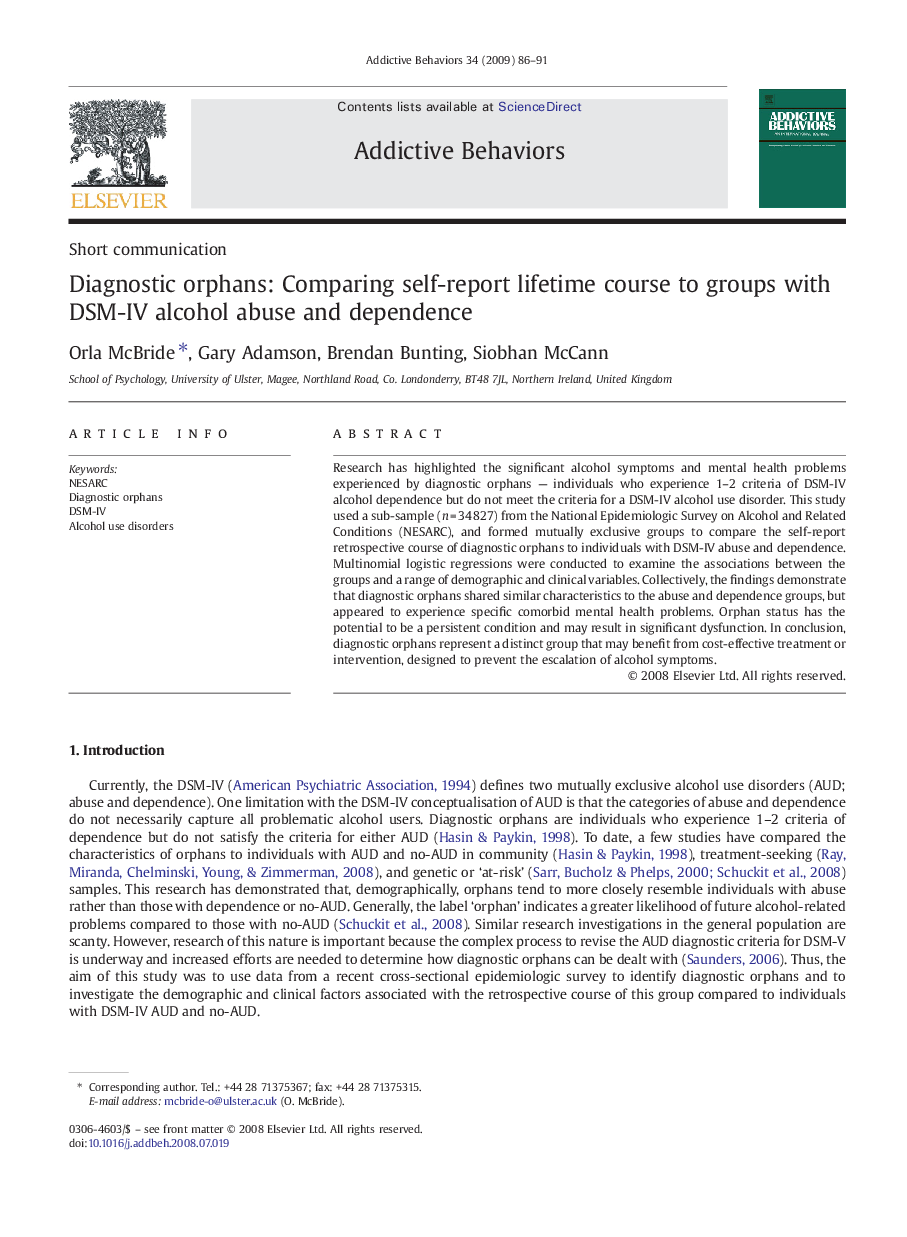| Article ID | Journal | Published Year | Pages | File Type |
|---|---|---|---|---|
| 899692 | Addictive Behaviors | 2009 | 6 Pages |
Research has highlighted the significant alcohol symptoms and mental health problems experienced by diagnostic orphans — individuals who experience 1–2 criteria of DSM-IV alcohol dependence but do not meet the criteria for a DSM-IV alcohol use disorder. This study used a sub-sample (n = 34 827) from the National Epidemiologic Survey on Alcohol and Related Conditions (NESARC), and formed mutually exclusive groups to compare the self-report retrospective course of diagnostic orphans to individuals with DSM-IV abuse and dependence. Multinomial logistic regressions were conducted to examine the associations between the groups and a range of demographic and clinical variables. Collectively, the findings demonstrate that diagnostic orphans shared similar characteristics to the abuse and dependence groups, but appeared to experience specific comorbid mental health problems. Orphan status has the potential to be a persistent condition and may result in significant dysfunction. In conclusion, diagnostic orphans represent a distinct group that may benefit from cost-effective treatment or intervention, designed to prevent the escalation of alcohol symptoms.
